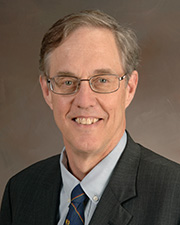Certified by the American Board of Orthopedic Surgery, Dr. Conrad specializes in orthopedic oncology. His primary interests include bone and soft tissue tumors in children and adults, as well as reconstruction and grafting for bone tumors.
Dr. Conrad earned his undergraduate degree from Washington and Lee University and his medical degree from The University of Virginia School of Medicine in Charlottesville, Virginia. He completed his internship at Roosevelt Hospital in New York, followed by a residency in orthopedic surgery at The Hospital for Special Surgery Sloan-Kettering Memorial Hospital Cornell Medical Center. He then pursued a fellowship in orthopedic oncology under Dr. William Enneking at the University of Florida and an additional fellowship in pediatric orthopedics under Dr. Mercer Rang at the Hospital for Sick Children in Toronto.
After his fellowship in Toronto, Dr. Conrad joined the University of Washington School of Medicine in Seattle, where he played a pivotal role in advancing sarcoma treatment. He was at the forefront of utilizing chemotherapy for sarcomas and helped set global standards for assessing risk and treatment response using Positron Emission Tomography (PET). His contributions also significantly influenced limb salvage surgery for both children and adults. Currently, his research focuses on identifying new drug treatments for sarcomas.
Dr. Conrad’s ongoing research includes multiple clinical studies on pediatric and adult tumors, with a particular emphasis on pediatric limb-sparing procedures, benign pediatric tumors, and soft-tissue sarcomas in adults. His work extends to metabolic imaging of sarcomas, the clinical and biological characteristics of hereditary multiple exostoses, and musculoskeletal transplantation responses. He also pioneered the first multidisciplinary clinics for pediatric and adult sarcomas at both Children’s and the University of Washington.
